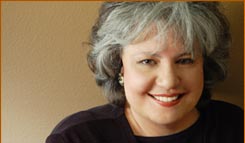 |

"Dara Marks is in a class by herself."
Creative Screenwriting Magazine, 2003 Script Analysts Review more... |

|
|
ARTICLES ABOUT DARA
 March-April 2003 Issue by Nancy Hendrickson The service we got: An Analysis for $1,500 which includes a two- to three-hour personal consultation, an audio cassette of the consultation, an eight- to ten-page written analysis, and a written structural breakdown of your story. (Because of our time constraints, we paid $1,200 and skipped the written analysis.) Other services offered: Rewrite Analysis for $900 includes a two-hour phone consultation and page notes, hourly consultations at $150 per hour, and lower cost analysis between $300 and $1,000 from a staff of consultants that she has personally trained. Impressions: Dara Marks is in a class by herself. Everything about her service is different. Let's start with the phone consultation. It';s not your typical question-and-answer session, nor is it an oral critique. It's more like an intensive screenwriting tutorial. Before your phone appointment, Marks faxes you a breakdown of your script - divided into A, B, and C stories - along with a diagram of what she calls the "Transformational Arc" so you'll have that in front of you when she refers to it. Quite a bit of time is spent discussing the arc, the breakdown, and the other terms she uses before you discuss the actual script in light of those terms. Marks said she tries to "help writers get into the depths of their material." Writers, she explained, start out by making "random, intuitive choices" which she helps them turn into "conscious, intentional choices." The key to that process lies in determining the screenplay's theme. Marks helps you discover your theme by pointing out to you what related elements you've already put into the script unconsciously In the case of Triple Witching Hour, she zeroed in on Kevin's ambiguity. He expresses a desire to be a writer, yet is doing a job that feels inauthentic to him out of a sense of obligation. At first, this seemed to add up to the theme "to thine own self be true." But as we talked, Marks decided that should be amended to: "Have the courage to be true to yourself." Such seemingly minor changes actually have huge implications because, once the theme is defined, "The turning points start to involve the theme and all choices start falling along this thematic line. Conversely, "... if we don't have a strong sense of what that theme is then all the choices are scattered about." Marks also helps you to define the character's "inner story" and "fatal flaw" (She pointed out that the best action films, like Rocky and Lethal Weapon, are the ones in which the protagonist has an inner story as well as an external story.) Then, taking that information together with the breakdown and the Transformational Arc, she works with you to create a template from which you will shape a new draft. In the case of Triple Witching Hour, this would include lots of scenes in which Kevin's courage was tested by both external forces and internal ones. Before we hung up, Marks had marked out the major turning points for the next draft, all of which now reflected Kevin's arc. She also delineated the relationship arc between Kevin and Bev. Personally I found "have the courage to be true to yourself" more of a character goal than a theme. To me, themes are more powerful when stated in the form of a thesis, which can then be proved true during the course of the script—i.e., "Until you are true to yourself, you can't be true to anyone" or "It takes more courage to be true to yourself than to face death." But this is a quibble. The theme Marks came up with was true to this script and would certainly serve to steer the writer in the right direction. The only real drawback - and it's a big one for most writers - is the price. Marks invites you to call with questions while you're rewriting, but to actually have her read and comment on the next draft will entail your making another major expenditure. And there is reason to believe you may have to do that to get the full scope of what she offers and get your script into optimum shape. "In this next draft you just want to sort of lay all these tracks down. Don't worry about perfection," said Marks, explaining that when she works on a script a second time she gives page notes and focuses on the nuances in each scene. Marks said she would soon be expanding her services to include script feedback in a lower price range given by a staff of consultants she has personally trained. Recommendations: At least once in your life, take a suite at the Ritz Carleton, buy an Armani suit or a pair of Manolo Blahnik shoes, and have a script analyzed by Dara Marks. It's expensive but there's nothing else like it. Excerpt from Creative Screenwriting Magazine, March-April 2003 Issue back to ABOUT DARA |